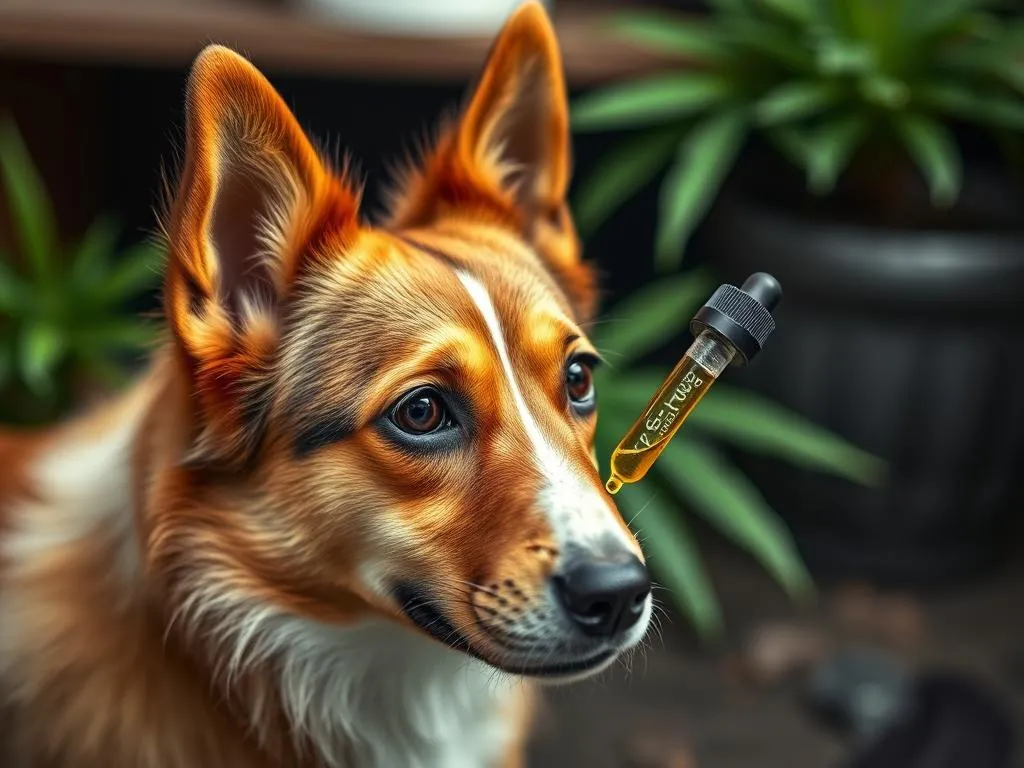
The interest in CBD oil for pets has surged in recent years, with more pet owners exploring natural remedies for their dogs’ health issues. As the market for CBD products expands, it’s crucial to understand the appropriate dosages to ensure the safety and well-being of your furry friend. CBD oil is celebrated for its potential benefits, including anxiety relief, pain management, and anti-inflammatory properties. However, the pressing question remains: how much CBD oil should I give my dog?
Understanding CBD Oil
What is CBD Oil?
CBD, or Cannabidiol, is a natural compound found in the cannabis plant. Unlike THC, the psychoactive component of marijuana, CBD does not produce a high. It is primarily derived from hemp, a variety of cannabis that contains minimal THC. This makes CBD oil a safer option for pets, as it does not have the intoxicating effects associated with marijuana.
How CBD Works in Dogs
Dogs, much like humans, have an endocannabinoid system (ECS) that plays a crucial role in regulating various physiological processes. The ECS consists of receptors located throughout the body, including the brain, immune system, and nervous system. CBD interacts with these receptors, potentially providing therapeutic effects. By modulating the ECS, CBD may help alleviate symptoms of anxiety, pain, and inflammation in dogs.
Benefits of CBD Oil for Dogs
Common Health Issues Treated with CBD
-
Anxiety and Stress Relief: Many dogs experience anxiety due to various factors, such as loud noises, separation from their owners, or changes in environment. CBD oil can help calm their nerves and reduce stress levels.
-
Pain Management: Dogs suffering from arthritis or chronic pain can benefit from the anti-inflammatory properties of CBD. It may help improve mobility and overall quality of life.
-
Seizure Control: Some studies suggest that CBD can be effective in managing seizures, particularly in dogs with epilepsy.
-
Anti-inflammatory Properties: CBD oil is known for its potential to reduce inflammation, which can be beneficial for dogs with inflammatory conditions.
Anecdotal Evidence vs. Scientific Research
While many pet owners report positive experiences with CBD oil, scientific research is still in its infancy. Some studies have shown promising results regarding the efficacy of CBD oil for dogs, but further research is needed to establish definitive conclusions. Pet owners often share anecdotal evidence of CBD’s benefits, creating a community of support and shared experiences.
Determining the Right CBD Oil Dosage for Your Dog
Factors Influencing Dosage
When determining how much CBD oil to give your dog, consider the following factors:
- Dog’s Weight: Larger dogs typically require higher doses compared to smaller dogs.
- Severity of Condition Being Treated: Dogs with severe conditions may need higher doses than those with mild symptoms.
- Individual Dog Metabolism and Health Status: Each dog is unique; factors such as age, breed, and overall health can influence how they metabolize CBD.
General Dosage Guidelines
A common recommendation for starting doses is 1-2 mg of CBD per kilogram of body weight. This is a good baseline to begin assessing how your dog responds to CBD oil. Adjust the dosage based on your dog’s response over time, but always consult with a veterinarian before making significant changes.
How to Calculate the Dosage
To calculate the dosage for your dog, follow these steps:
- Determine your dog’s weight in kilograms.
- Multiply your dog’s weight by the starting dose (1-2 mg).
Example Scenarios:
– For a 10 kg dog:
– Starting dose: 10 kg x 1 mg = 10 mg of CBD oil.
- For a 25 kg dog:
- Starting dose: 25 kg x 1 mg = 25 mg of CBD oil.
Administration Methods
Types of CBD Oil Products
There are various CBD oil products available for pets, including:
- Tinctures: Liquid extracts that can be administered directly or mixed with food.
- Treats: Pre-measured doses in the form of treats, making them easy to administer.
- Capsules: Convenient pills that can be given as part of a routine.
- Topical Applications: Creams or balms that can be applied directly to the skin to target localized pain.
Each type has its pros and cons. Tinctures allow for precise dosing, while treats may be more appealing to your dog.
How to Administer CBD Oil to Dogs
Administering CBD oil effectively is crucial for ensuring proper absorption and efficacy:
- Tips for Administering Tinctures: Use a dropper to place the oil directly into your dog’s mouth, ideally under the tongue for quick absorption.
- Incorporating CBD into Dog’s Food: Mix the oil with your dog’s food to mask the taste, ensuring they consume the full dose.
- Ensuring Proper Absorption: Administering CBD oil with a fatty meal can enhance absorption, as CBD is fat-soluble.
Potential Side Effects and Risks
Common Side Effects
While CBD oil is generally considered safe, some dogs may experience side effects, including:
- Drowsiness: High doses can lead to sedation.
- Dry Mouth: CBD may reduce saliva production, leading to increased thirst.
- Changes in Appetite: Some dogs may experience an increase or decrease in appetite.
Risks of Overdosing
It’s crucial to stick to recommended doses, as overdosing on CBD can lead to adverse effects. Signs of CBD overdose may include excessive sedation, vomiting, or diarrhea. If you suspect an overdose, contact your veterinarian immediately.
Consultation with a Veterinarian
Before introducing CBD oil into your dog’s health regimen, it’s essential to discuss it with a veterinarian. They can provide personalized recommendations based on your dog’s health history and current medications, helping to avoid potential drug interactions.
Legal Considerations
Legality of CBD Oil for Pets
The legal status of CBD oil for pets varies by state and country. In the United States, CBD derived from hemp with less than 0.3% THC is federally legal. However, some states may have additional regulations, so it’s important to stay informed about local laws.
Choosing Quality CBD Products
Not all CBD products are created equal. When selecting CBD oil for your dog, look for:
- Third-party Testing: Ensure the product has been tested by an independent lab for purity and potency.
- Certificate of Analysis (COA): This document verifies the product’s contents and confirms it meets legal standards.
- Reputable Brands: Research brands with positive reviews and a strong reputation in the pet health community.
Conclusion
In summary, understanding how much CBD oil to give your dog is essential for safe and effective use. Consider factors such as weight, condition severity, and individual metabolism when determining dosage. Consult your veterinarian for tailored advice and to discuss any potential risks. While CBD oil has shown promise in alleviating various health issues in dogs, responsible use is paramount. With the right approach, CBD oil can be a valuable addition to your dog’s health care routine, promoting a happier and healthier life for your beloved pet.









